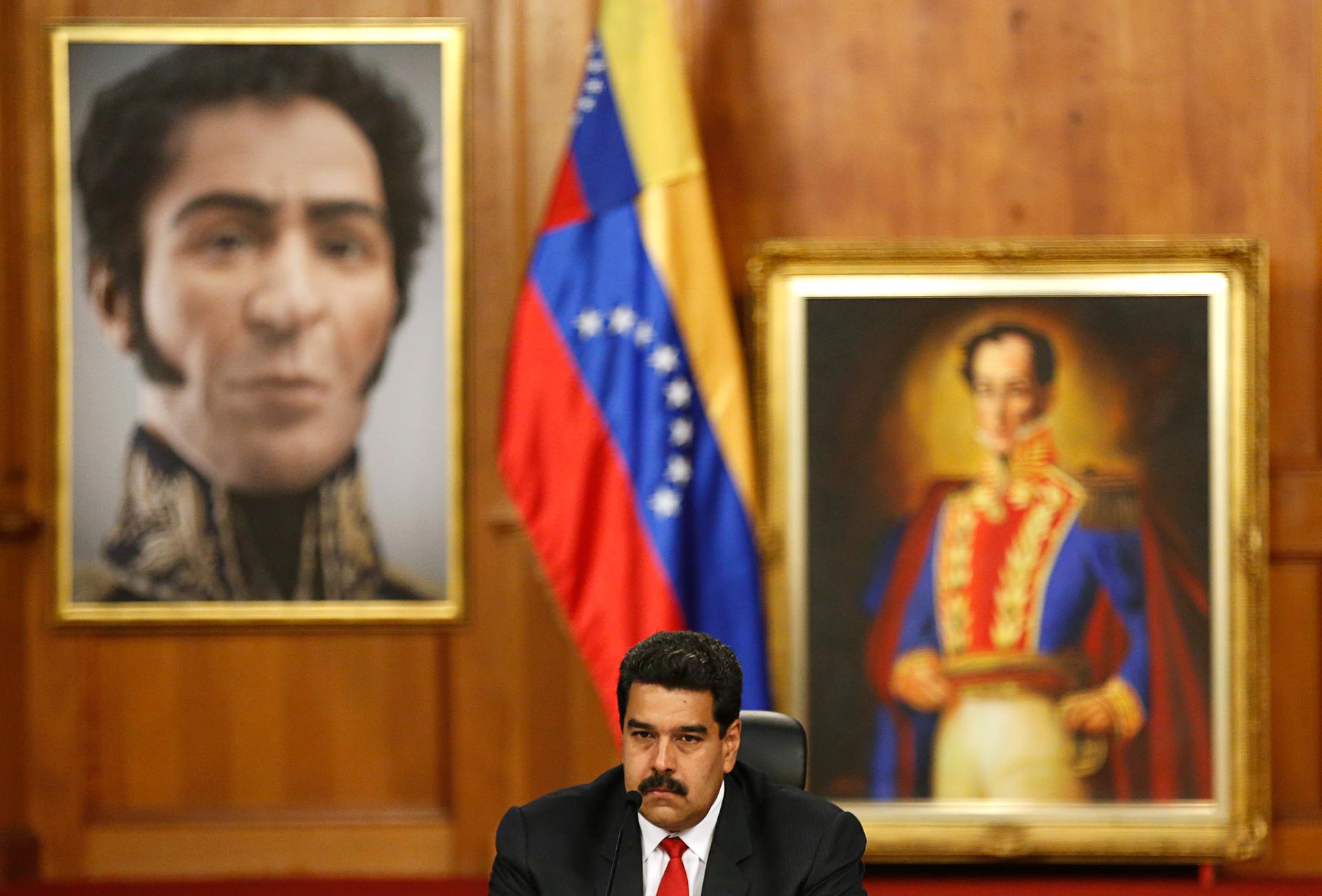Venezuela’s opposition gets talks with the government — on national TV
Venezuela’s President Nicolas Maduro attends to a meeting with representatives of the opposition, the Roman Catholic Church and Union of South American Nations’ (UNASUR) at Miraflores Palace in Caracas April 10, 2014.
In Venezuela, deadly anti-government protests over recent months have tested President Nicolas Maduro's grip on power.
The protesters want Maduro to step down. But Maduro's government has responded by cracking down on the opposition. At least 40 people have died and about 600 have been wounded since February.
But Thursday, Maduro and the opposition actually sat down together for televised talks that ran late into the night.
"It was an interesting journey," says BBC Mundo's Daniel Pardo in Caracas. "It was a six-hour meeting between people who never met, and they used to insult each other almost every day."
While the meeting did not produce any concrete solutions to the South American country's many issues, it did signal the chance for change to come soon.
"These talks are quite significant because they haven't happened in the past 10 years," Pardo says. The last time a ruler of Venezuela tried to have a dialogue with his opposition was in 2004, after an attempted coup against former president Hugo Chavez.
The fact that the talks were televised is also quite significant. According to Pardo, the Venezuelan government is used to having a lot of control over television content, so "one of the conditons that the opposition had yesterday was that this debate was televised."
And although the talks ran until about 2:30 a.m., Pardo reports many Venezuelans stayed up to watch it.
In such a polarized country, talks like this can only be expected to open the door to further dialogue that would tackle the big issues.
"The country is still in bad shape," Pardo says, "You have an economy that has one of the highest inflations in the world, have shortages of basic goods. So, no, major change has not occured, but political change has."
Maduro has agreed to more talks with the opposition, scheduled for Tuesday.
"They need to do something to create a new atmosphere where dialogue is possible and where the opposition people, even the radicals, feel that there is a possibility of change," Pardo says.
In Venezuela, deadly anti-government protests over recent months have tested President Nicolas Maduro's grip on power.
The protesters want Maduro to step down. But Maduro's government has responded by cracking down on the opposition. At least 40 people have died and about 600 have been wounded since February.
But Thursday, Maduro and the opposition actually sat down together for televised talks that ran late into the night.
"It was an interesting journey," says BBC Mundo's Daniel Pardo in Caracas. "It was a six-hour meeting between people who never met, and they used to insult each other almost every day."
While the meeting did not produce any concrete solutions to the South American country's many issues, it did signal the chance for change to come soon.
"These talks are quite significant because they haven't happened in the past 10 years," Pardo says. The last time a ruler of Venezuela tried to have a dialogue with his opposition was in 2004, after an attempted coup against former president Hugo Chavez.
The fact that the talks were televised is also quite significant. According to Pardo, the Venezuelan government is used to having a lot of control over television content, so "one of the conditons that the opposition had yesterday was that this debate was televised."
And although the talks ran until about 2:30 a.m., Pardo reports many Venezuelans stayed up to watch it.
In such a polarized country, talks like this can only be expected to open the door to further dialogue that would tackle the big issues.
"The country is still in bad shape," Pardo says, "You have an economy that has one of the highest inflations in the world, have shortages of basic goods. So, no, major change has not occured, but political change has."
Maduro has agreed to more talks with the opposition, scheduled for Tuesday.
"They need to do something to create a new atmosphere where dialogue is possible and where the opposition people, even the radicals, feel that there is a possibility of change," Pardo says.
